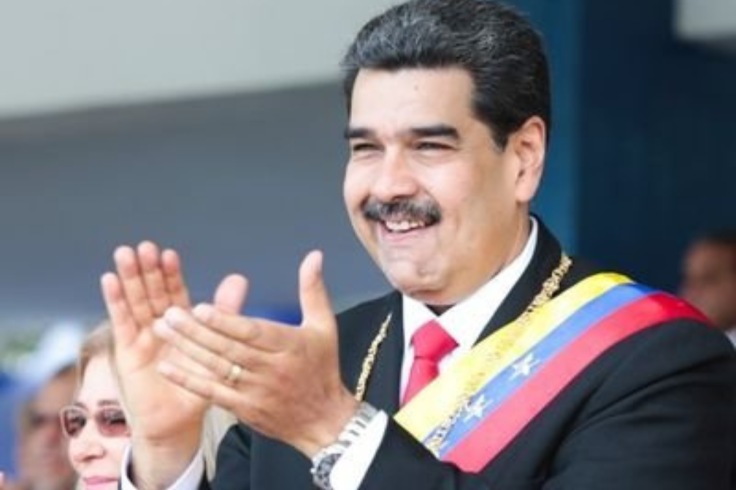What Did Nicolas Maduro Do To Venezuela And Why Is The US Government After Him?
The US has targeted Maduro with sanctions and criminal indictments since 2020, accusing him of leading the Cartel del Sol

The United States has escalated its pursuit of Venezuelan President Nicolás Maduro, doubling a reward for his arrest to £37.2 million ($50 million) on 8 August 2025, accusing him of narco-trafficking and undermining democracy.
Maduro, who has ruled Venezuela since 2013, faces international condemnation for his role in the country's economic collapse and alleged criminal activities.
The US, alongside allies like the UK and EU, has intensified actions against him following a disputed election in July 2024.
Maduro's Role in Venezuela's Crisis
Since succeeding Hugo Chávez, Maduro has presided over Venezuela's spiralling political and economic crisis, marked by hyperinflation, widespread shortages, and mass migration.
Over 5.6 million Venezuelans have fled the country, driven by economic collapse attributed to corruption and mismanagement. His government has been accused of repressing opposition groups and manipulating elections to maintain power.
The controversial polls in May 2018 and July 2024 saw opposition candidates barred or jailed, with the National Electoral Council, aligned with Maduro, declaring him the winner despite evidence suggesting opposition candidate Edmundo González secured more votes.
X posts from @warintel4u on 30 July 2025 state, 'The U.S. has placed a $25 million bounty on Venezuelan President Nicolás Maduro, whom it has designated as the leader of the De Los Soles cartel.'
⚡️The U.S. has placed a $25 million bounty on Venezuelan President Nicolás Maduro, whom it has designated as the leader of the De Los Soles cartel.
— War Intel (@warintel4u) July 30, 2025
Nicolás Maduro has been accused of drug trafficking into the U.S. pic.twitter.com/9aydE8ArEL
Maduro's repressive tactics include arbitrary detentions and violent crackdowns, with over 2,400 arrests reported after the 2024 election.
The Carter Center, an election observer, declared the vote lacked electoral integrity, fuelling global outrage.
US Actions Against Maduro
The US has targeted Maduro with sanctions and criminal indictments since 2020, accusing him of leading the Cartel del Sol and partnering with groups like Colombia's FARC to flood the United States with cocaine.
On 8 August 2025, US Attorney General Pam Bondi announced the increased bounty, alleging Maduro's involvement in smuggling 30 tons of cocaine, with nearly seven tons linked to Maduro himself.
During Donald Trump's first term, the US charged Maduro with narco-terrorism and corruption, claiming he used state resources to protect drug trafficking operations.
The US Department of State also imposed visa restrictions on nearly 2,000 Maduro-aligned officials and sanctioned eight individuals on 10 January 2025 for supporting his illegitimate assertion of authority.
X posts from @SecRubio on 27 July 2025 state, 'Maduro is the head of the Cartel de Los Soles, a narco-terror organization which has taken possession of a country.'
Maduro is NOT the President of Venezuela and his regime is NOT the legitimate government. Maduro is the head of the Cartel de Los Soles, a narco-terror organization which has taken possession of a country. And he is under indictment for pushing drugs into the United States.
— Secretary Marco Rubio (@SecRubio) July 27, 2025
These measures aim to pressure Maduro's regime, which the US and allies refuse to recognise after the fraudulent election results.
International Response and Maduro's Defiance
The international community, including the UK, EU, and Canada, has echoed US actions. On 10 January 2025, the UK sanctioned 15 Venezuelan officials for undermining democracy and human rights violations, while the EU extended restrictive measures.
Maduro, however, remains defiant, dismissing the US bounty as 'pathetic' and accusing Washington of orchestrating a cyber coup.
Venezuelan Foreign Minister Yvan Gil called the accusations political propaganda, alleging they distract from domestic US issues.
Maduro's allies, including China, Russia, and Iran, continue to support him, with only Cuban and Nicaraguan leaders attending his inauguration on 10 January 2025. Meanwhile, opposition leader María Corina Machado, in hiding, and González, in exile in Spain, lead calls for a democratic transition.
The UN has urged the release of arbitrarily detained political prisoners, highlighting Maduro's repression tactics. The US's aggressive stance, backed by a £37.2 million ($50 million) reward, underscores its commitment to ousting Maduro, whom it views as a threat to regional stability and democratic values.
As Venezuela's crisis deepens, the international community watches closely, with Maduro's grip on power increasingly tenuous.
© Copyright IBTimes 2025. All rights reserved.





















